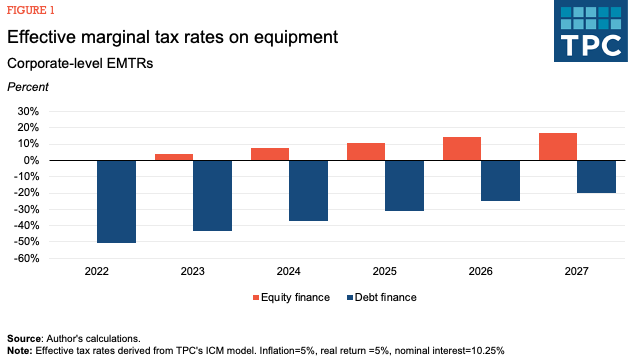IRA tax considerations for contributions and withdrawals
Commonly asked retirement questions on IRA accounts.
As an accountant, your clients look to you for retirement advice, including tax considerations for IRA plans, the tax benefits of different IRA types, taxes on IRA contributions and withdrawals, and inheritance-related topics.
Below are some commonly asked questions on IRA tax considerations so you can optimize retirement strategies and provide personalized advice to your clients.
Jump to:
Tax on IRA plans
When it comes to retirement planning, traditional IRAs offer tax-deductible contributions, potentially reducing your client’s taxable income, while Roth IRAs involve after-tax contributions with tax-free withdrawals in retirement. Early withdrawals from traditional IRAs are generally (not always) subject to penalties — see information on Form 5329 — while all withdrawals (even after age 59 ½) are subject to income tax whether early or not.
Assisting your clients with strategies like Roth conversions can help minimize taxes on IRA withdrawals. In a similar vein, inherited IRAs are subject to income tax for beneficiaries, but strategies such as the “stretch” option can mitigate tax burdens. While converting a 401(k) to a Roth IRA involves paying taxes on the conversion, it can also minimize liabilities.
Understanding these tax nuances is important for accountants to offer effective retirement planning strategies and optimize financial outcomes for their clients.
Are IRA contributions tax-deductible?
Contributions to traditional IRAs may be tax-deductible, depending on factors such as income and participation in an employer-sponsored retirement plan. The deduction may be limited if a retirement plan at work covers you or your spouse and your income exceeds certain levels. However, those eligible to deduct their contributions can potentially reduce their taxable income.
Do you pay taxes on a Roth IRA?
Contributions to a Roth IRA aren’t tax-deductible and you don’t report the contributions on your tax return. However, future earnings are sheltered from taxes and provide tax-free growth. To qualify as a Roth IRA, the account must be designated as such when you set it up.
Is a Roth IRA pre-tax?
Unlike traditional IRAs, contributions to Roth IRAs are made with after-tax dollars. Therefore, contributions are not tax deductible. However, the benefit of a Roth IRA lies in its tax-free withdrawals during retirement, provided certain conditions are met.
How are Roth IRA deductions normally taxed?
Since contributions to Roth IRAs are made with after-tax dollars, they are not taxed upon withdrawal during retirement. While you will pay taxes up-front, and contributions cannot be deducted from your yearly income, both the earnings and contributions can be withdrawn tax-free when you reach retirement age.
Roth IRA tax benefits
Contributions to Roth IRAs are made with after-tax dollars, meaning they are not tax-deductible upfront and provide no current-year tax benefits. The advantage of Roth IRAs lies in their tax-free growth potential and withdrawals during retirement.
Differing from traditional IRAs, qualified distributions from Roth IRAs are not subject to income tax, and you can withdraw them tax and penalty free after age 59½ if the account has been open for five years.
When do you pay taxes on IRA withdrawals?
Typically, the money in a traditional IRA, including earnings and gains, is not taxed until you take a distribution — that is, a withdrawal — after age 59½. At that time, you’ll pay tax on the gains as if they were ordinary income.
Roth IRA withdrawals, however, are generally tax free as contributions are made with after-tax dollars.
Taxes on early IRA withdrawal
If you withdraw funds from a traditional IRA before the age of 59½, you may be subject to an early withdrawal penalty of 10% unless you qualify for an exception, such as disability or certain qualified higher-education expenses.
Roth IRA withdrawals, on the other hand, are generally tax free if you meet certain requirements. Since contributions to Roth IRAs are made with after-tax dollars, qualified withdrawals — which usually means withdrawing after age 59½ and having the account open for at least five years — are tax free.
Taxes on IRA withdrawal after age 59 ½
Withdrawals from traditional IRAs after age 59½ are generally subject to income tax at your ordinary income tax rate. This means the amount you withdraw is added to your taxable income for the year you make the withdrawal, and you’ll owe taxes on it accordingly.
For Roth IRAs, withdrawals of both contributions and earnings are typically tax free if you’re over 59½ and the account has been open for at least five years because Roth IRA contributions are made with after-tax dollars, so you’ve already paid taxes on the money you contributed.
However, if you’re withdrawing earnings from a Roth IRA before the account has been open for five years — or if you are younger than age 59½ — those earnings may be subject to income tax and potentially a 10% penalty unless you qualify for an exception.
It’s worth noting that while there’s no mandatory requirement to withdraw from Roth IRAs during your lifetime, traditional IRAs are subject to required minimum distributions (RMDs), requiring you to withdraw a certain minimum amount each year, which is then taxed as ordinary income.
Avoiding taxes on IRA withdrawals
To avoid taxes on IRA withdrawals, consider the following strategies:
- Convert to a Roth IRA. Consider converting traditional IRA funds into a Roth IRA. While you’ll pay taxes on the converted amount in the year of the conversion, qualified distributions from the Roth IRA are tax free, including both contributions and earnings. This strategy can be particularly advantageous if you expect to be in a higher tax bracket in the future or if you anticipate tax rates to increase.
- Use Roth contributions. If you have a Roth IRA, prioritize contributions to it. Since Roth IRA contributions are made with after-tax dollars, qualified withdrawals of both contributions and earnings are tax free. This strategy can provide tax-free income in retirement.
- Delay withdrawals. If possible, delay withdrawing from your IRA accounts until you’re in a lower tax bracket, such as during retirement when you may have less income from other sources. Doing so can potentially reduce the amount of taxes you owe on those withdrawals.
Inherited IRA tax rules
Generally, inherited IRA tax rules depend on several factors, including whether the beneficiary is a spouse or non-spouse, the type of IRA inherited, and the age of the original account owner at the time of their death.
Withdrawals from inherited traditional IRAs are generally taxable as ordinary income. Withdrawals from inherited Roth IRAs are tax free if the account has been open for at least five years or the distribution is considered a qualified distribution.
Inheritance tax on an IRA
Inheritance tax on an IRA depends on various factors, including the type of IRA, the relationship between the deceased account owner and the beneficiary, and the tax laws of the state where the deceased resided.
The value of the IRA may be subject to federal estate tax if the decedent’s gross estate, as adjusted, exceeds the estate tax exemption threshold. Additionally, some states impose an inheritance tax on the beneficiaries of an estate, which may include IRAs. However, not all states have an inheritance tax, and the rules vary widely among those that do.
Do beneficiaries pay tax on an IRA inheritance?
Typically, beneficiaries who inherit a traditional IRA owe income tax on distributions they receive from the IRA. This tax is based on the amount withdrawn and the beneficiary’s tax bracket. However, distributions from an inherited Roth IRA are generally tax free as long as certain conditions are met.
How to avoid paying taxes on an inherited IRA
While you can’t completely avoid paying taxes on an inherited IRA, follow these strategies to minimize your tax liability:
- Stretch IRA strategy. Non-spouse beneficiaries can choose to stretch out distributions over their own life expectancy. By taking only the required minimum distributions each year, they can spread the tax burden over time, potentially reducing the impact of taxes.
- Convert to a Roth IRA. Some beneficiaries may choose to convert an inherited traditional IRA into a Roth IRA. While they’ll pay taxes on the amount converted at the time of conversion, qualified distributions from a Roth IRA are tax free, providing tax-free income in retirement.
- Take a lump-sum distribution. Depending on your current and future tax situation, you might consider taking a lump-sum distribution from the inherited IRA in a year where your income tax bracket is lower. This strategy could reduce the overall tax burden compared to spreading out distributions over time.
- Utilize charitable planning. If you plan to leave a portion of the inherited IRA to charity, consider naming a charity as a beneficiary or making qualified charitable distributions (QCDs) from the IRA. This method can reduce the taxable portion of the IRA while supporting a charitable cause.
Converting a 401(k) to a Roth IRA without tax liability
Here are some strategies to minimize tax liability when converting a 401(k) to a Roth IRA:
- Convert to Roth within a lower tax bracket. If you expect to be in a lower tax bracket in the current year than in future years, you might consider converting a portion of your traditional 401(k) to a Roth IRA.
- Spread out conversions over several years. Instead of converting the entire balance of your traditional 401(k) to a Roth IRA in a single year, you could spread out the conversions over several years.
- Utilize tax deductions and credits. Take advantage of any available tax deductions and credits to offset the tax liability resulting from the conversion.
- Consider after-tax contributions. If your traditional 401(k) includes after-tax contributions, you may be able to segregate those contributions and convert them to a Roth IRA tax free. However, any earnings on the after-tax contributions would still be subject to tax upon conversion.
Taxes on Roth IRA conversion
When you convert from a traditional IRA into a Roth IRA, the converted IRA balance is treated as if it were a distribution to you; therefore, you must include the amount on your tax return and pay income tax on the entire amount the year in which you made the conversion. The amount of tax you pay will depend on your income tax bracket and income tax rate.
Rollover 401(k) to IRA: What are the tax consequences?
Rolling over a traditional 401(k) to a traditional IRA typically does not trigger an immediate tax liability because both 401(k) and IRA accounts are designed for retirement savings and share similar tax treatment.
If you convert your traditional 401(k) to a Roth IRA instead of a traditional IRA, you will owe income tax on the converted amount because Roth IRAs are funded with after-tax dollars, so the conversion represents a taxable event. The amount converted is added to your taxable income for the year of the conversion, potentially pushing you into a higher tax bracket. However, you won’t be taxed on qualified Roth IRA withdrawals after you retire.
How to stay up to date on IRA tax considerations
For accountants, keeping abreast of changes to taxes on IRA contributions and withdrawals is crucial as you guide your clients into retirement. With Checkpoint Edge, our premier tax research tool, you’ll get all the latest tax updates, commentary, and insights to help you stay one step ahead.
Alongside UltraTax CS, our professional tax preparation software with a full line of federal, state, and local tax programs, you’ll save time and boost productivity. And, for quick reference, the IRA and Retirement Plan Quickfinder Handbook could prove invaluable.






